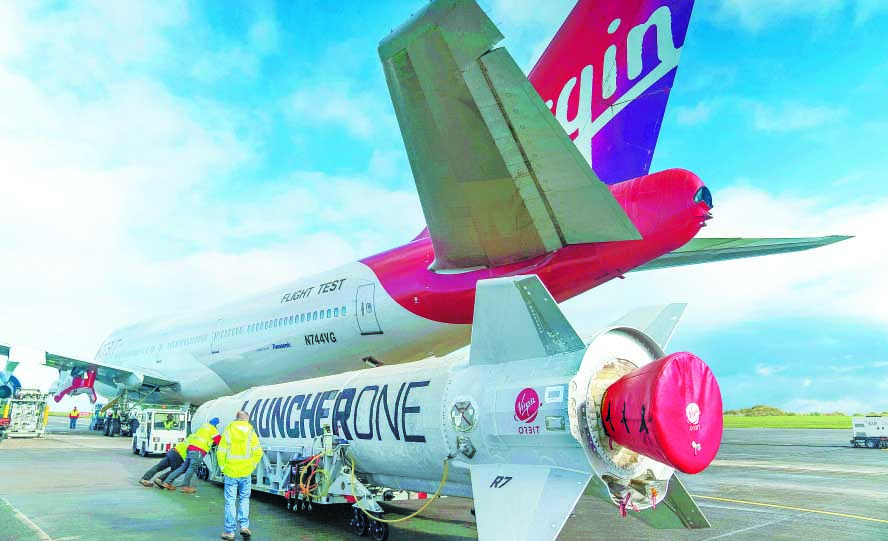UK's bid to put satellites in orbit fails


Those behind project vow to try again after problem is identified, resolved
The first attempt to launch satellites into orbit from British soil ended in failure on Monday night when the LauncherOne rocket made it into space but did not reach the right altitude.
A modified Boeing 747 jet plane, operated by United States-based company Virgin Orbit, carried a rocket out of Newquay, Cornwall, to release it high over the Atlantic Ocean.
The private launch company announced just before midnight that there had been an "anomaly "in the mission. It explained later that the 747, known as Cosmic Girl, had returned to Cornwall, but the rocket itself and its multimillion-pound cargo of nine satellites were left to break up in the atmosphere.
Speaking on BBC Radio 4's Today program, Deputy CEO of the UK Space Agency, Ian Annett, said the outcome showed "how difficult "getting into orbit is. He said further missions would be attempted within the next year. "We get up, we go back, we try again, that's what defines us," he said.
The Times newspaper reported that an investigation has started to find out what happened and why the rocket failed to reach its designated orbit.
Some details of what happened were revealed in the later statement from Virgin Orbit, which said that after taking off from the runway at Spaceport Cornwall and traveling to the designated drop zone, the 747 jet had successfully released the rocket.
It explained: "The rocket then ignited its engines, quickly going hypersonic and successfully reaching space. The flight then continued through successful stage separation and ignition of the second stage. However, at some point during the firing of the rocket's second stage engine and with the rocket travelling at a speed of more than 11,000 miles per hour (17,702 kmh), the system experienced an anomaly, ending the mission prematurely."
The mission involved collaboration between a range of agencies in the US and the UK, and attempted to demonstrate that space launch is achievable from British soil.
In the statement, Matt Archer, Director of Commercial Spaceflight at the UK Space Agency, said: "While it is obviously disappointing that the mission wasn't successful, actually we're really proud of the fact that we've delivered so much here and we've created the conditions for launch here. We've seen that we can do it and we will look to do it again."
Dan Hart, the CEO of Virgin Orbit, said: "The first-time nature of this mission added layers of complexity that our team professionally managed through; however, in the end a technical failure appears to have prevented us from delivering the final orbit.
"We will work tirelessly to understand the nature of the failure, make corrective actions, and return to orbit as soon as we have completed a full investigation and mission assurance process."

































